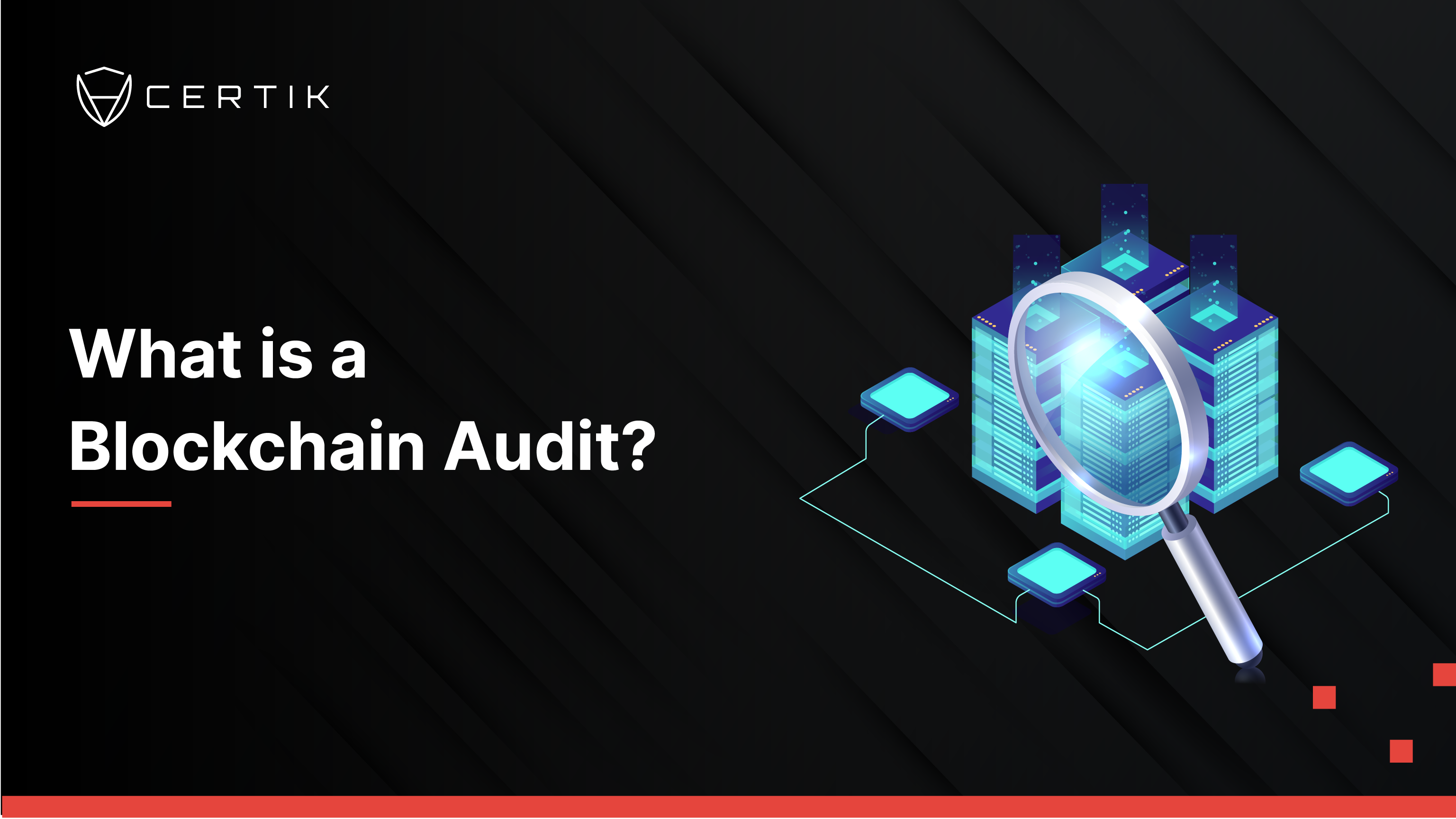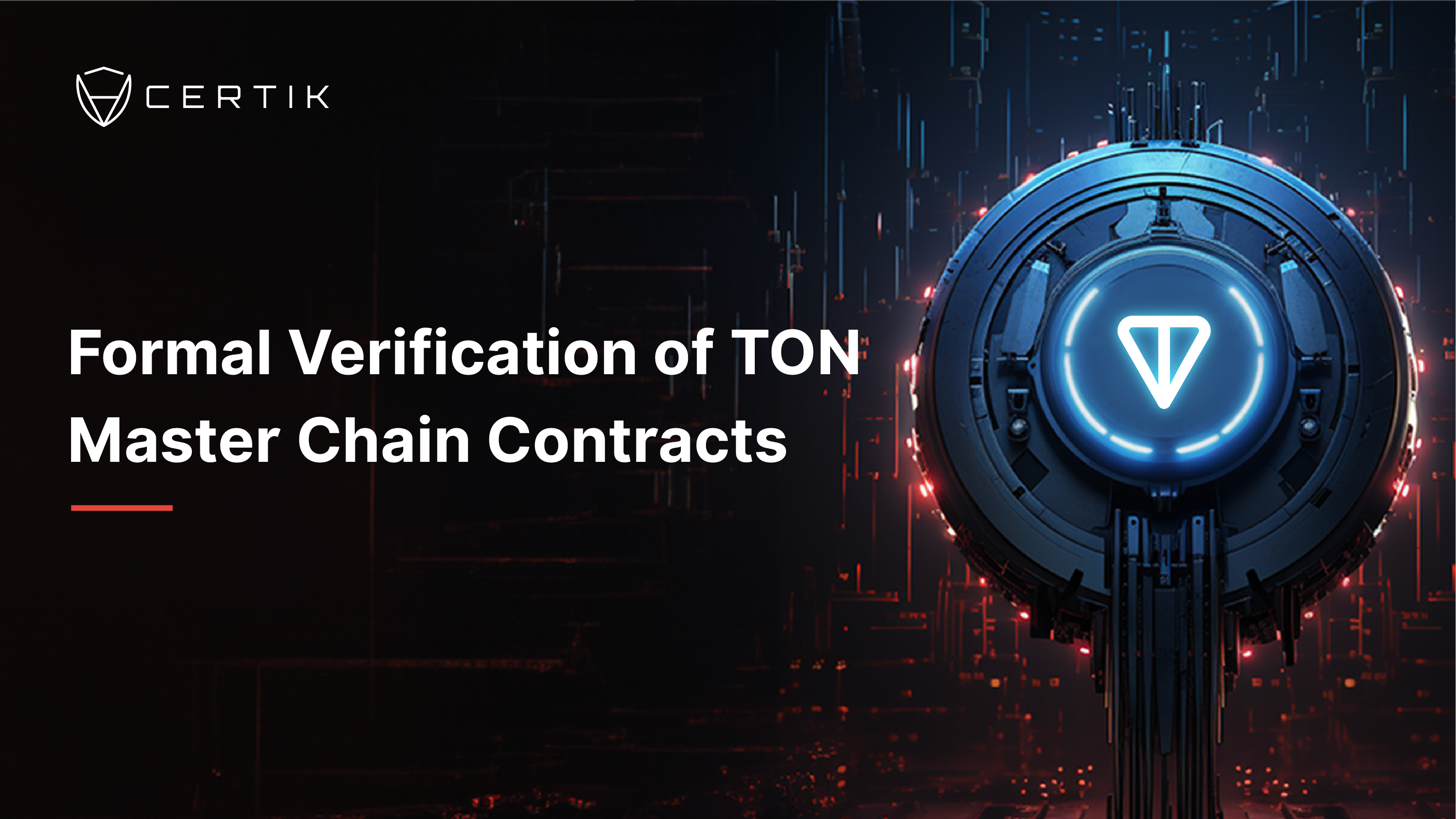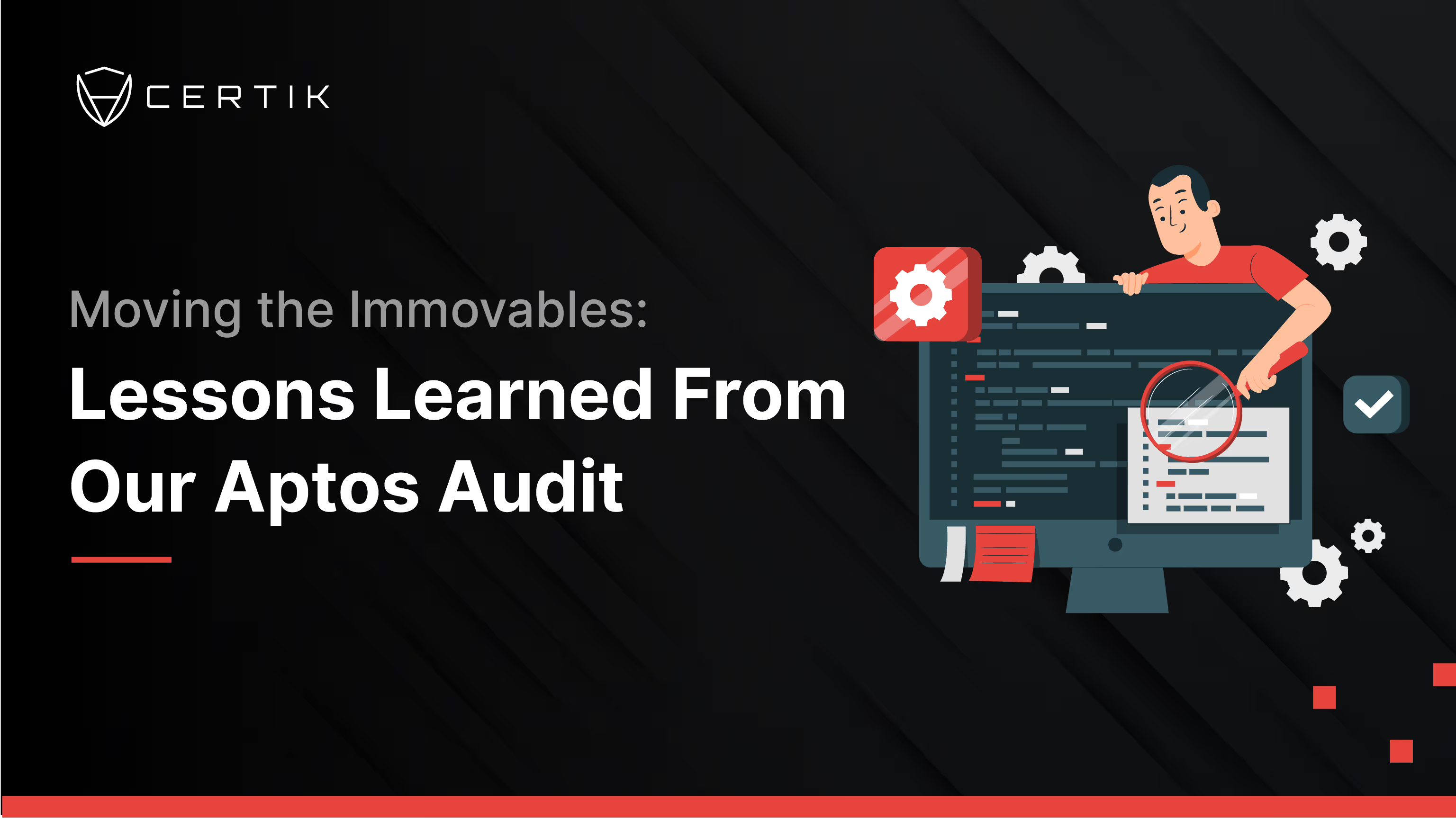
After Bitcoin showed the world the myriad benefits of decentralized and trustless systems, blockchain technology has emerged as the cornerstone of Web3. A blockchain's immutable ledger provides a transparent and secure way to store data and execute transactions, making it an attractive solution for industries where breaches of trust can incur significant financial costs. As the world moves more online, there aren’t many industries where this isn’t the case.
And blockchain has more than just commercial application; it has the potential to revolutionize everything from art to artificial intelligence. The changes brought about by the invention of blockchain technology are only beginning to be felt.
Trustless systems force people to stand by the agreement they made, while decentralization ensures that no-one can tamper with them. However, as with any emerging technology, it is crucial to ensure that the blockchain technology is secure and functioning correctly. This is where blockchain audits come in. Blockchain audits ensure that the system is functioning as intended.
In this article, we will discuss the importance of blockchain audits and how they work. We will also explore the benefits of conducting a blockchain audit and why it should be a top priority for L1 founders and the developers who build applications on top of these baselayers.
What is a Blockchain Audit?
Blockchain auditing is the process of evaluating a blockchain's security, functionality, and compliance with industry standards. It involves a thorough review of the blockchain's design architecture and code to ensure that everything is operating as intended and is free from vulnerabilities or weaknesses.
Blockchain audits are conducted by experienced auditors or specialized audit firms with expertise in blockchain technology. These auditors use advanced tools and techniques to assess the blockchain's integrity and provide recommendations for improvement. Blockchain audits play a vital role in ensuring that the blockchain is trustworthy and secure for all parties involved.
One of the significant benefits of blockchain technology is its immutability, which makes it nearly impossible (or at least extremely costly) to tamper with or alter the blockchain's data. However, this also means that any errors or vulnerabilities within the blockchain can have severe consequences, potentially leading to financial losses or security breaches.
For instance, suppose a blockchain is used to store sensitive data, such as personal information or financial records. In that case, any errors or vulnerabilities in the blockchain's security can result in the exposure of that information, leading to identity theft, fraud, or other malicious activities.
Similarly, if a blockchain is used to execute financial transactions, any errors or vulnerabilities in the blockchain's code can result in financial losses for the parties involved. This can lead to reputational damage for the organization using the blockchain and loss of trust from customers or stakeholders.
Therefore, conducting a blockchain audit is crucial for businesses and organizations to ensure that their blockchain systems are secure, reliable, and compliant with industry standards. A blockchain audit can identify potential vulnerabilities or weaknesses within the blockchain and provide recommendations for improvement, mitigating any potential risks.
How Blockchain Audits Work
A blockchain audit typically involves reviewing the blockchain network's technical specifications, reviewing the code used to build the network, and verifying that the data stored in the blockchain is accurate and complete. The audit may also involve testing the blockchain network's security measures, such as access controls and encryption protocols, to identify any vulnerabilities or weaknesses. Blockchain audits are conducted by experienced auditors or specialized audit firms with expertise in blockchain technology. The audit process typically involves the following steps:
Planning: The audit team will work with the organization to define the scope of the audit, including the blockchain's objectives, functions, and expected outcomes.
Reviewing: The audit team will review the blockchain's architecture and code to assess its integrity.
Testing: The audit team will perform various tests to identify any vulnerabilities or weaknesses within the blockchain's security, such as penetration testing, code review, or configuration review.
Reporting: The audit team will provide a detailed report of their findings and recommendations for improvement. The report may include a summary of the audit's objectives, scope, methodology, and findings.
Follow-up: The audit team may work with the organization to implement any recommendations and ensure that the blockchain system is functioning correctly.
Benefits of Blockchain Audits
Conducting a blockchain audit offers several benefits for businesses and organizations, including:
Improved Security: A blockchain audit can identify potential vulnerabilities or weaknesses within the blockchain's security, enabling organizations to take corrective measures to mitigate any potential risks.
Compliance with Industry Standards: A blockchain audit can ensure that the blockchain system complies with industry standards and regulations, such as the General Data Protection Regulation (GDPR) or the Financial Action Task Force (FATF) recommendations. This is usually more of a concern with explicitly financial applications built on top of blockchains, but it’s something to consider for baselayer builders too.
Enhanced Trust and Credibility: Conducting a blockchain audit demonstrates an organization's commitment to ensuring the integrity and security of their blockchain systems, thereby enhancing trust and credibility among users and stakeholders.
Cost Savings: Identifying and addressing potential vulnerabilities or weaknesses within the blockchain system can save organizations from potential financial losses, reputational damage, or legal liabilities.
Continuous Improvement: A blockchain audit can provide organizations with valuable insights and recommendations for improving their blockchain systems, enabling them to stay ahead of potential risks and challenges.
Different Types of Blockchain Audits
There are two types of audits that are conducted on blockchain systems: audits of the underlying blockchain protocol and audits of the smart contracts that run on top of it.
An audit of the underlying blockchain protocol is done to evaluate the security, functionality, and compliance of the blockchain protocol itself. This type of audit makes sure that the blockchain is operating as intended and that there are no vulnerabilities or weaknesses. The audit team usually consists of experienced auditors who specialize in blockchain technology. They use advanced tools and techniques to assess the blockchain's integrity and provide recommendations for improvement.
An audit of the smart contracts that run on top of the blockchain protocol is done to evaluate the security, functionality, and compliance of the smart contracts that are used to execute transactions on the blockchain. Smart contracts are self-executing contracts that are written in lines of code. They run on top of the blockchain protocol and are used to execute transactions automatically when specific conditions are met. An audit of the smart contracts ensures that they are operating as intended and that there are no vulnerabilities or weaknesses. The audit team usually consists of experienced auditors who specialize in smart contract development and security. They use specialized tools and techniques to assess the smart contract's integrity and provide recommendations for improvement.
The main difference between an audit of the underlying blockchain protocol and an audit of the smart contracts is the focus of the audit. An audit of the blockchain protocol focuses on the security, functionality, and compliance of the blockchain's architecture, consensus mechanism, and transaction history. In contrast, an audit of the smart contracts focuses on the security, functionality, and compliance of the smart contract's code, logic, and execution.
Both audits are essential for ensuring the security and reliability of blockchain technology. By conducting these audits, organizations can ensure the integrity and security of their blockchain systems, thereby enhancing trust and credibility
Keeping Blockchain Honest: Auditing For the Good of the Industry
As the world recognizes the benefits of decentralized and trustless systems, blockchain technology has grown in popularity. However, as with any emerging technology, it is crucial to ensure that it’s as secure as possible.
Blockchain audits play a vital role in ensuring the integrity, security, and compliance of blockchain systems with industry standards and regulations. Conducting an audit can help identify potential vulnerabilities or weaknesses within the blockchain system and provide recommendations for improvement, mitigating any potential risks.
Auditing should be a top priority for founders and developers to ensure that their blockchain systems are secure, reliable, and compliant with industry standards. As the Web3 world continues to evolve, blockchain audits will become even more critical in ensuring the security and trustworthiness of blockchain systems.



